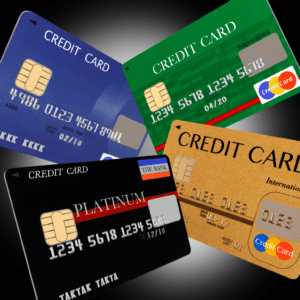Can I use my Credit Card for International Travel?

Introduction
Hey there! If you’re planning to travel abroad or make purchases from international merchants, you might be wondering whether your trusty credit card can be used for those transactions and if there are any hidden fees involved. Don’t worry; I’ve got you covered! In this article, we’ll explore the ins and outs of using your credit card for international transactions, including the potential fees you may encounter along the way. Let’s dive in!
1. Using Your Credit Card Internationally
The short answer is yes! In most cases, you can absolutely use your credit card for international transactions. Credit cards are widely accepted around the world, making them a convenient and secure payment method when you’re exploring new places or shopping online at foreign retailers. Whether you’re traveling for business or pleasure, having a credit card in your wallet can be a real lifesaver.
2. Card Network Acceptance
Before you embark on your international journey, it’s essential to know which card network your credit card belongs to—Visa, Mastercard, American Express, or others. Different countries and merchants might have varying acceptance levels for these networks, so it’s a good idea to carry a backup card from a different network to ensure you have options if one card is not accepted.
3. Notifying Your Bank
While credit card companies continuously improve their fraud detection systems, international transactions might still raise red flags. To avoid any inconveniences, it’s a smart move to inform your bank about your travel plans in advance. Most banks have online platforms or customer service lines where you can easily set up travel notifications, specifying the dates and countries you’ll be visiting. This way, they won’t mistake your legitimate transactions for potential fraud, and your card will work smoothly overseas.
4. Foreign Transaction Fees
Now, let’s talk about the infamous foreign transaction fees. Unfortunately, yes, most credit cards charge a fee for transactions made outside your home country. These fees can vary from card to card, typically ranging from 1% to 3% of the transaction amount. While it might not seem like much initially, these fees can add up, especially if you’re frequently using your credit card during your travels. But hold on! There’s some good news, too.

5. Fee-Free Cards
Believe it or not, some credit cards are specifically designed for international travelers and offer fee-free transactions abroad. These cards have become more popular over the years, and many banks now offer them as part of their product lineup. When considering a fee-free card, look for features like no foreign transaction fees, competitive exchange rates, and valuable travel rewards.
6. Dynamic Currency Conversion (DCC)
Picture this: You’re at a fancy restaurant abroad, and after a delicious meal, the waiter offers to charge your credit card in your home currency. Sounds convenient, right? Well, this is what’s known as Dynamic Currency Conversion (DCC), and while it might seem tempting, it’s generally best to decline it.
DCC may look like a hassle-free option, but it often comes with unfavorable exchange rates and additional fees. Instead, choose to be billed in the local currency of the country you’re visiting. This way, your card’s network will handle the currency conversion, which usually results in a better exchange rate and fewer fees.
7. Cash Advances and ATM Withdrawals
Before you use your credit card to withdraw cash from an ATM overseas, you need to be aware of cash advance fees. Cash advances on credit cards typically incur higher interest rates and fees than regular purchases. Additionally, some ATMs may charge their own fees for international withdrawals.
If you need cash while abroad, consider using a debit card linked to a checking account instead, as it may have lower fees for ATM withdrawals.
8. Travel Insurance Benefits
Some credit cards offer additional perks like travel insurance for customers who use their cards to book flights, accommodations, or other travel-related expenses. This feature can be incredibly valuable, providing coverage for trip cancellations, delays, lost baggage, medical emergencies, and more. It’s worth checking with your credit card provider to see if your card includes these benefits and the extent of coverage provided.
Frequently asked Questions
- Can I use my credit card in any country?
- While most major credit cards are accepted globally, acceptance can vary by country and merchant.
- Are there fees for international transactions?
- Many cards charge foreign transaction fees, typically a percentage of the purchase amount.
- Is it safe to use my credit card abroad?
- Generally, yes, but always be cautious of skimming devices and only use ATMs in well-lit, secure areas.
- Should I notify my bank before traveling?
- Yes, to prevent potential security holds on your card due to unexpected foreign transactions.
- Will I get the best currency conversion rate with my credit card?
- Credit cards often offer competitive exchange rates, but it’s essential to be aware of any additional fees.
- What should I do if my card is lost or stolen while abroad?
- Immediately report it to your card issuer, who can assist with blocking the card and providing emergency replacements.
- Is it better to be charged in the local currency or my home currency?
- Opting for local currency can help avoid extra conversion fees that some merchants might add.
- Do all international ATMs accept credit cards?
- Not all ATMs accept every card. Look for logos on the ATM that match your card’s network.
- Are there credit cards specifically designed for international travel?
- Yes, some cards offer no foreign transaction fees, global acceptance, and travel rewards.
- How can I avoid foreign transaction fees?
Conclusion:
In conclusion, using credit cards internationally offers convenience, but it’s crucial to be aware of potential fees and security measures. Always notify your bank before travel, opt for transactions in local currency when possible, and consider cards designed for global use to maximize benefits and minimize costs.


